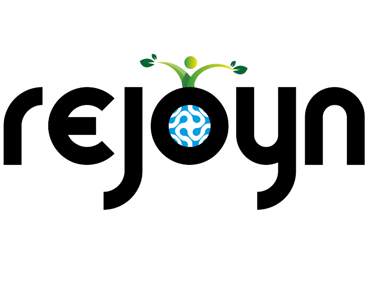Why Sustainable Living Feels So Hard — and How to Make It Easier
Struggling to live sustainably in a world full of confusing choices and greenwashing? This post explores why sustainable living feels so hard and shares simple steps—plus real-life examples—on how to make it easier with Rejoyn. Discover practical eco tips, honest support, and accessible solutions to help you live more sustainably, without guilt or overwhelm. Perfect for anyone searching for “sustainable living made easy” and “how to live more sustainably.”
SUSTAINABLE LIVING
Lr
6/28/20256 min read
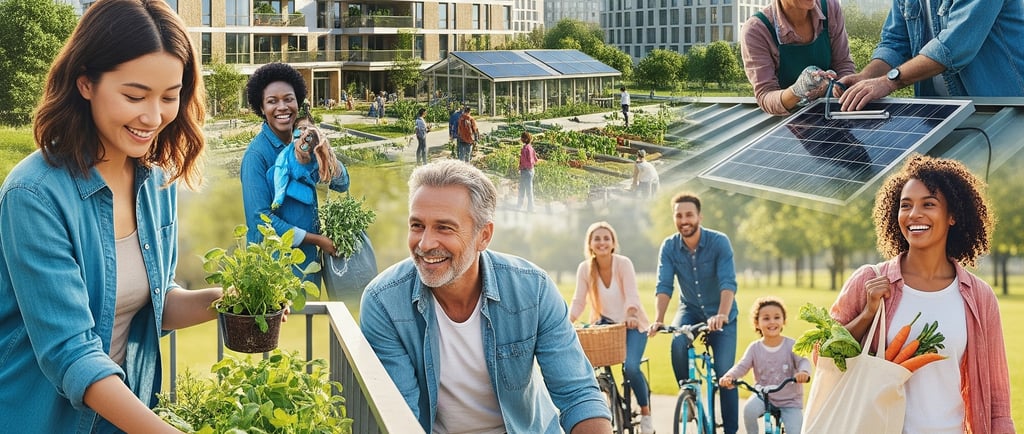

You want to live more sustainably.
But every option seems expensive, complicated, or hidden behind jargon. Maybe you’ve started a dozen “eco” searches, compared labels until your eyes glazed over, or felt a little guilty for tossing plastic after a long tiring day.
If that’s you, you’re not alone. Most of us want to do the right thing. But the path to a truly sustainable life rarely feels clear or easy. Instead, it’s usually a maze—full of mixed signals, endless options, and the pressure to somehow “do it perfectly.”
This blog contains...
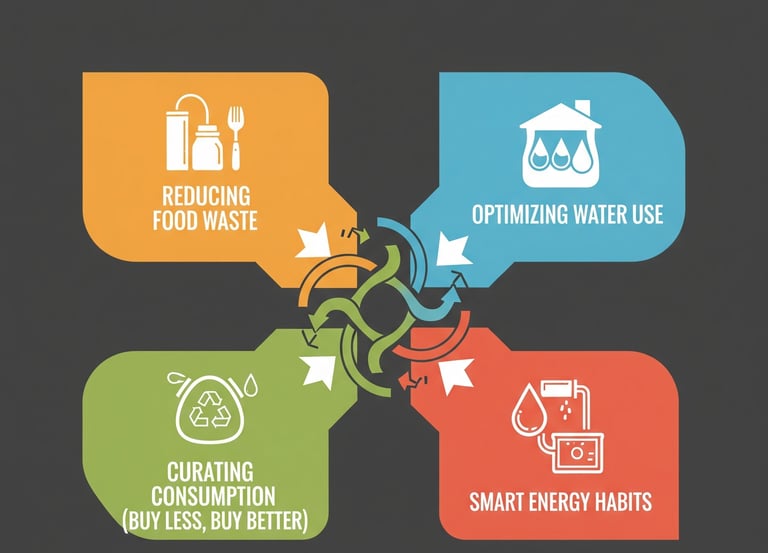

Your Questions, Our Answers
Why Does Sustainable Living Feel So Hard?
Too many choices—not enough clarity:
Every product claims to be the “greenest.” But digging into the details just makes things blurrier.Guilt-driven marketing:
A lot of advice sounds like, “You’re doing it wrong.” Who wants to feel like a bad person for forgetting their reusable bag once?Sustainability feels exclusive:
Zero-waste influencers make perfection look effortless. But real life has deadlines, family needs, and tight budgets.Time and energy are limited:
Most of us barely have time to cook, let alone research compost methods that work in tiny apartments.Too much greenwashing, not enough trust:
Companies use buzzwords, but you’re left wondering if your choices actually matter.
The truth? It’s not you. It’s the system. Modern life isn’t set up for sustainable choices to be easy or obvious. The effort it takes is real, and sometimes it’s exhausting.
What If It Could Be Easier?
Imagine if making better choices was simple.
Where clarity replaced confusion.
Where support—not shame—was the norm.
Where solutions respected your time and energy, rather than draining it.
Where “living sustainably” wasn’t a trend, but more of a gentle, natural rhythm you could join at your own pace.
How Rejoyn Helps
We built Rejoyn because we were tired of the same hassles. Our mission is to lower the barrier between you and a more sustainable life. Here’s how we do it:
Curated real options that are actually available and practical (not just “eco” in name).
Tools that save time, not waste it: Think easy-to-follow guides and done-for-you product swaps.
Systems that fit your life: No pressure to be perfect—just simple, honest support for real needs.
Consulting with respect: We meet you where you are and help you find solutions that match your identity and goals.
Here are straightforward, impactful solutions that cut through the noise:
1. Master Your Food Waste
This is one of the biggest individual impacts. It's not about complex composting right away, but about smarter habits:
Plan Your Meals: A few minutes planning weekly meals helps you buy only what you'll actually eat. Less impulse buying means less spoilage.
"Eat Me First" Shelf: Designate a spot in your fridge for items that need to be eaten soon. This visual cue drastically reduces forgotten produce.
Understand Dates: "Best By" is about quality, not safety. "Use By" is for safety. A lot of food is perfectly fine past its "Best By" date. Use your senses!
Freeze It: Overripe fruit? Slice and freeze for smoothies. Leftover soup? Freeze in portions. Bread going stale? Freeze slices for toast.
2. Rethink Your Water Use (Beyond Shorter Showers)
It's not just about what comes out of the tap; it's about what you consume.
Fix Leaks Immediately: A dripping faucet wastes surprising amounts of water over time. It's a quick fix that saves money and resources.
Full Loads Only: Whether it's laundry or dishes, wait until the machine is full. Running half-loads wastes water and energy.
Boil Only What You Need: When making tea or coffee, only fill the kettle with the water you'll actually use. Saves energy and water.
Support Local, Seasonal Food: The water footprint of out-of-season, transported produce is immense. Buying local, seasonal food reduces this hidden water use.
3. Simplify Your Consumption (The "Buy Less, Buy Better" Rule)
This tackles the root of many environmental problems: overconsumption.
The "30-Wear" Rule: Before buying clothes, ask yourself if you'll wear it at least 30 times. If not, reconsider. This encourages quality over quantity.
Borrow or Rent: For tools, formal wear, or occasional-use items, consider borrowing from friends, community libraries, or renting instead of buying.
Repair Before Replacing: Many items (shoes, small appliances, furniture) can be repaired. Look for local repair shops or online tutorials. It extends their life and saves money.
Opt for Durables: Choose reusable water bottles, coffee cups, and shopping bags. This simple switch avoids thousands of single-use items over time.
4. Smart Energy Habits (Beyond Unplugging)
Practical ways to reduce your energy footprint, which also saves you money.
Adjust Thermostat by a Degree or Two: Small changes in temperature settings (up in summer, down in winter) can significantly impact energy use without major discomfort.
Natural Light & Airflow First: Open blinds/curtains during the day, use natural ventilation to cool. Rely on artificial light and AC/heating as a last resort.
Optimize Appliance Use: Run dishwashers and washing machines during off-peak hours if your utility offers incentives. Use cold water for laundry whenever possible.
LED Lighting: If you haven't switched all your bulbs to LED, prioritize this. They use a fraction of the energy and last far longer.
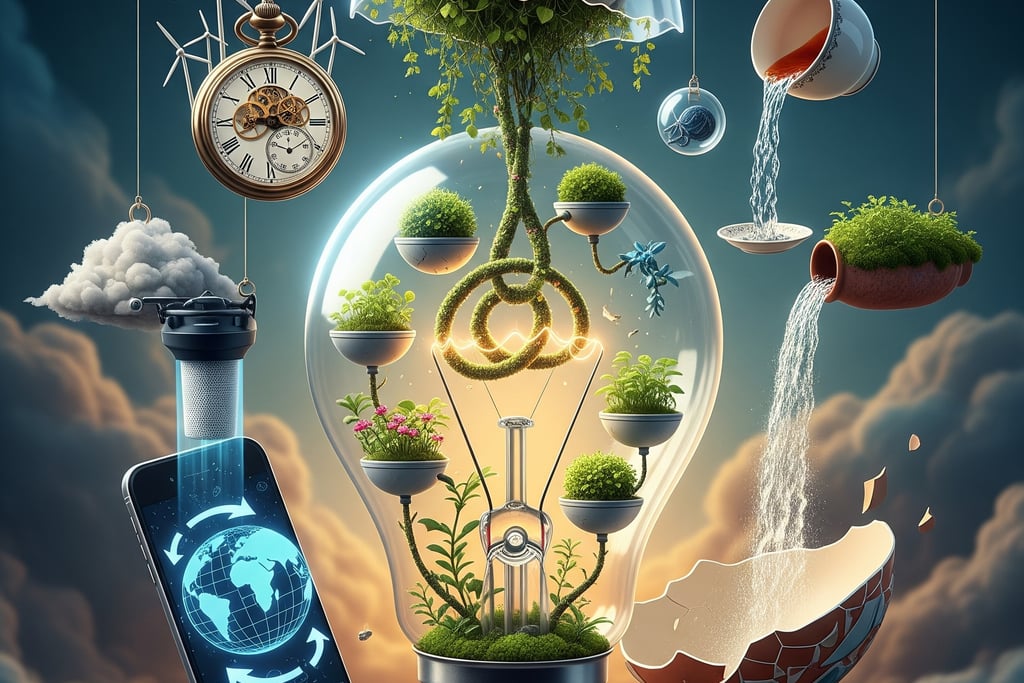

Practical Steps You Can Take Today
Start with just one swap.
Replace a single-use plastic item with a better alternative. For example, switch to refillable water bottles or reusable shopping bags. Don’t try to change everything at once.
Join or build a local sharing network.
Connect with your community to borrow tools, share rides, or swap items—saving money and reducing waste.Audit your trash and spending.
Spend five minutes looking at what you throw away most often, or where most of your money goes. Tackle one small thing at a time.Seek out trusted recommendations.
Use platforms like Rejoyn (or others you trust) to find verified products and services—don’t rely on big marketing promises.Ask for help or advice.
Post a question, join a local eco group, or even talk with us. Real progress happens faster when you’re not struggling alone.
A young woman in Pune wanted to swap out plastics in her kitchen, but the process felt overwhelming. Rejoyn gave her a starting point—with verified product swaps, simple guides, and support—so the change actually fit her life, not the other way around.
A local café wasn’t sure how to start reducing food waste. With one call and a pilot solution from Rejoyn’s upcoming platform, they found simple tweaks that made a real difference—without needing a consultant or a big staff.
An artist searching for planet-friendly supplies found more than recommendations—Rejoyn helped her actually source and budget for them, saving her research time and frustration.
Each story is a small step
but small steps can ripple outwards,
inspiring bigger shifts..
What You Can Do Now
Visit and explore Rejoyn as we launch—see if our tools fit your needs, even just one small change at a time.
Bookmark guides or resources that match your next step—nothing more, nothing less.
Sign up for our newsletter if you want monthly tips and support, not advertising.
Reach out and share a challenge you’re facing—we want to help, and if we don’t know the answer, we’ll say so honestly.
Real Stories, Real Solutions
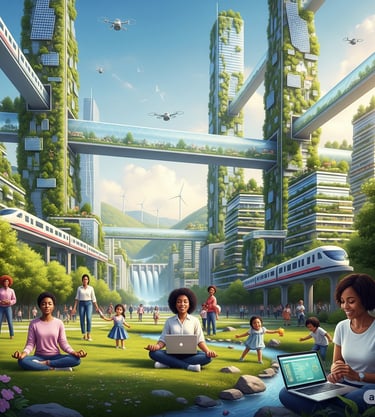

Sustainable living isn’t about being perfect. It’s about starting, then sticking with the things that matter. It’s progress, not perfection.
Let’s make this journey less about pressure, and more about purpose, ease, and real connection.
We can build a more sustainable life—and future—together.
